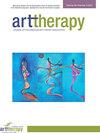A Review of “Head and Heart: Yoga Therapy and Art Therapy Interventions for Mental Health”
IF 1.3
Q3 PSYCHOLOGY, CLINICAL
引用次数: 0
Abstract
consultive, I critically examined myself within my own role as a supervisor. For example, my whiteness is part of my identity and this book provided me with examples of how to meaningfully start conversations as I intersect with supervisees, clients, and the systems within which supervisees are working. As a result, I critiqued my own developmental approach to supervision, which has then increased reflection for practicum students. I offer two of the many gems that resonated for me as I evaluated my roles as supervisee and supervisor. The first helped to shape my trust in group processes of supervision as supervisees who are not actively speaking can be engaged “holders of the space” (p. 176). The second quote, “in supervision, I learned that any commonalities I had with a client, while valid, did not supersede my privilege and power” (p. 129) will undulate in my movement through roles and relationships in supervision as a steady current of critical awareness. This book has guided my facilitation and engagement of reflection and reflexivity, especially when helping supervisees navigate transference, countertransference, and parallel process with awareness of the impact of racial, ethnic, and socio-cultural differences. Readers can also use this text to locate themselves within the supervisory experience and engage in further study from any point. This book is for the benefit of any supervisor or supervisee within the art therapy field.“头脑与心灵:瑜伽疗法和艺术疗法对心理健康的干预”综述
作为一名导师,我认真地审视了自己。例如,我的白人身份是我身份的一部分,这本书为我提供了一些例子,告诉我如何在与主管、客户以及主管工作的系统相交时,有意意地开始对话。因此,我批判了我自己发展的监督方法,这增加了实习学生的反思。当我评估我作为管理者和主管的角色时,我给出了许多引起我共鸣的精华中的两点。第一个有助于塑造我对监督小组过程的信任,因为不积极发言的监督者可以成为“空间的持有者”(第176页)。第二个引用,“在监督中,我了解到,我与客户的任何共同点,虽然有效,但并不取代我的特权和权力”(第129页),将在我的运动中波动,通过监督中的角色和关系,作为一股稳定的批判意识之流。这本书指导了我对反思和反身性的促进和参与,特别是在帮助管理者驾驭移情、反移情以及意识到种族、民族和社会文化差异影响的平行过程时。读者也可以用这篇文章来定位自己的监督经验,并从事进一步的研究,从任何一点。这本书是为任何主管或监督在艺术治疗领域的利益。
本文章由计算机程序翻译,如有差异,请以英文原文为准。
求助全文
约1分钟内获得全文
求助全文

 求助内容:
求助内容: 应助结果提醒方式:
应助结果提醒方式:


